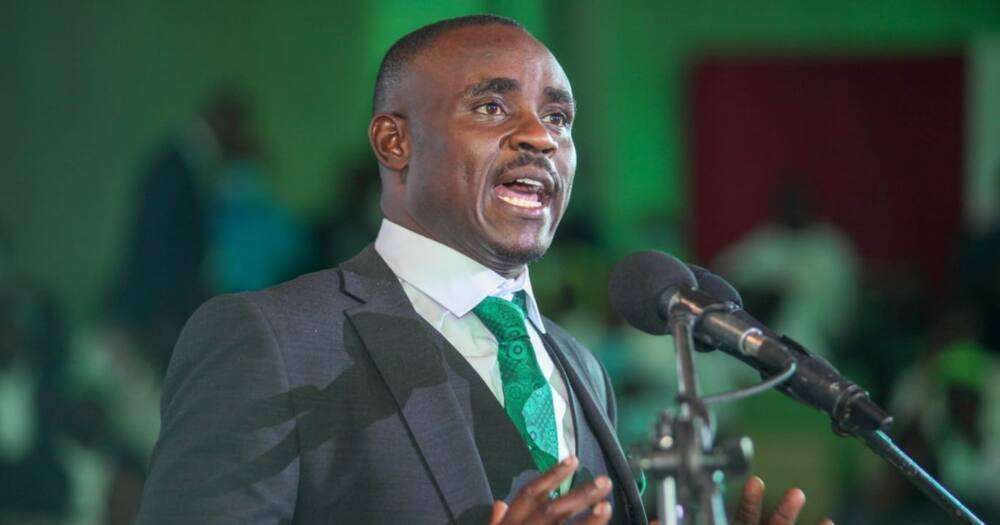By TWV Reporter
Law Society of Kenya (LSK) Chairperson Faith Odhiambo has resigned as Vice Chairperson of the Panel of Experts on Compensation of Victims of Demonstrations and Public Protests, which was established by President William Ruto on 25th August, following a High Court order halting its operations.
Nyeri High Court Judge Kizito Magare issued the conservatory orders after four activists petitioned the court, arguing that the establishment of the task force was an “unlawful exercise of the President’s powers”. The petitioners contended that President Ruto lacked the legal authority to constitute such a panel and questioned the criteria used in selecting its members.
In a statement, Ms Odhiambo noted that the Panel, chaired by Ruto’s Adviser on Constitutional Affairs and Human Rights, Prof Makau Mutua, comprised distinguished Kenyans who have made significant contributions towards advancing the rule of law and human rights in Kenya. She added that the proposed mandate of the Panel presented an opportunity to overhaul the existing legal and institutional framework on victim reparations, which, as it stands, has proven inadequate in addressing public concerns over the long-standing crisis of police overreach and the victimisation of protesters during demonstrations.
“As resilient as the resolve of the Law Society of Kenya has been in upholding the rule of law throughout Kenya’s history, especially in the last two years, my oath of office demands that I do all it takes to preserve such resilience from any and all adversaries and detractors. Accordingly, I have today handed in my formal and immediate resignation from the position of Vice Chairperson of the Panel of Experts on Compensation of Victims of Demonstrations and Public Protests to the Head of Public Service,” she said.
Ms Odhiambo stated that her resignation acknowledges the crucial juncture at which Kenya finds itself in the quest for full constitutional implementation and lasting democratic reform. She emphasised that this moment calls for all rule of law institutions, especially the Law Society of Kenya, to remain united and steadfast in discharging their mandates under the law. “As things stand, the time-bound mandate of the Panel has been stopped by our courts, and the proposed 120-day tenure is likely to lapse before the matter is resolved. While the clock runs down on the Panel’s lifetime, victims continue to reach out to me in frustration over when their requests for audience will be honoured. Unfortunately, it is not feasible to achieve the time-sensitive milestones I undertook to deliver, and I must therefore prioritise other avenues of responding to the plight of victims through my other responsibilities, particularly my leadership of the Law Society of Kenya,” she said.
She reaffirmed that her commitment to advocating for the rights of victims remains steadfast. “I will continue to take up and prosecute matters on behalf of victims of police excesses during demonstrations, and work towards safeguarding holistic justice for victims. Today, a team of LSK advocates in Kisumu is handling matters on behalf of victims of police brutality during the 2023 demonstrations against the high cost of living. In this and other ongoing matters, we will be moving the courts and seeking the intervention of the Judiciary’s leadership to expedite proceedings with a view to concluding them as soon as practicable.”
Ms Odhiambo further acknowledged the significant gaps in Kenya’s victim reparations framework, which she said must be addressed urgently. She disclosed that the LSK would henceforth engage justice sector stakeholders and human rights institutions to formulate legislative proposals aimed at reconciling weaknesses in current laws and institutions that have left victims disadvantaged in their pursuit of justice.
“Our proposals will focus on transforming Kenya’s approach to dealing with victims of police excesses and state overreach, from the current protracted process of apportioning criminal liability to an efficient, victim-centred approach focused on rehabilitation and restoring victims to a life of dignity and purpose. We must treat reparations for victims with the same seriousness with which we treat repercussions for perpetrators.”
She also pledged to pursue all deliverables promised to victims, including the memorialisation of victims, the publication of their identities to honour their memories, the identification of unreported victims, and the tracking of all reported cases to ensure necessary interventions are made.
The LSK, she said, will also propose that Chief Justice Martha Koome issue practice directions to all courts handling matters relating to victims of police excesses to fast-track hearings and determinations. Additionally, the Society will petition Parliament to review legislation on demonstrations, enact provisions to protect demonstrators, and ensure reparations where police excesses occur.
Ms Odhiambo expressed optimism that if the same determination and focus are directed towards advancing this alternative approach, a positive and lasting outcome for victims remains well within reach.





